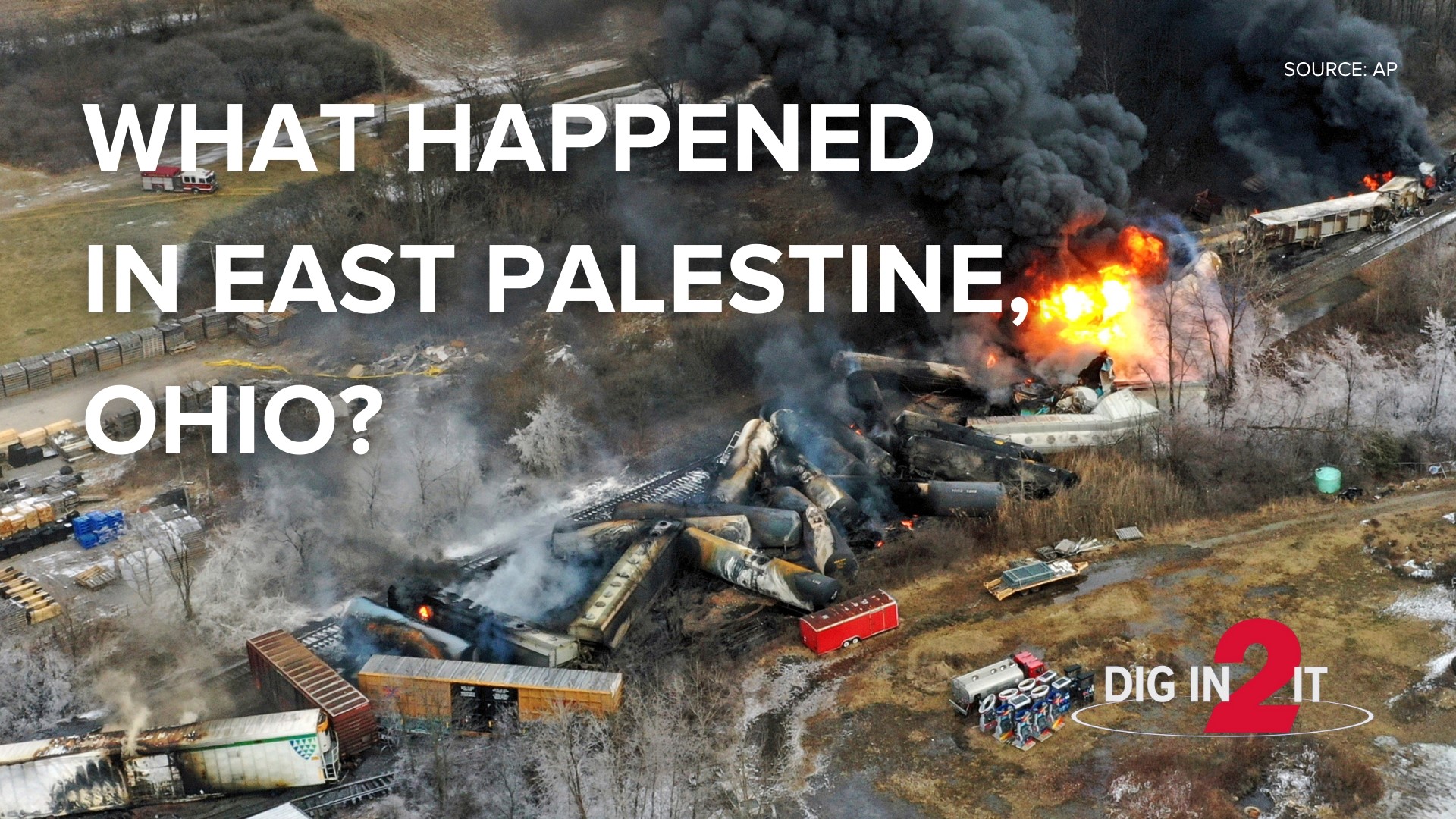EAST PALESTINE, Ohio — On Feb. 3, a 150-car freight train carrying a toxic, flammable material derailed in East Palestine, Ohio.
Days after the crash, a smoke cloud could be seen from the wreckage as crews worked to burn off what was left of the gas there and to prevent a larger explosion.
In the days since the derailment, the Ohio Department of Natural Resources reported 3,500 fish died because of spilled toxic chemicals. Residents of East Palestine who were forced to evacuate are reporting breathing problems they said are related to the toxic gas released in the crash.
On Thursday, the Environmental Protection Agency said the air quality is back to pre-accident levels, and while traces of toxic chemicals were found in water samples, officials said they were not at levels dangerous to humans.
Residents said they are unable to get answerers from Norfolk Southern, who operated the derailed train. Representatives from the company pulled out of a town hall meeting Wednesday, citing safety concerns.
What contributed to the crash?
Ohio Senator J.D. Vance and Florida Senator Marco Rubio sent a joint letter to U.S. Transportation Secretary Pete Buttigieg. The Senators brought up one main concern: The practice of precision-scheduled railroading (PSR).
To explain what precision-scheduled railroading is, Steve Ditmeyer, a former head of research and development at the Federal Railroad Administration, remembered a Federal Regulatory Authority hearing.
"They had shippers, their customers came in and wanted to talk to the Surface Transportation Board, and as these shippers said, 'precision-scheduled railroad is not precision. It's not scheduled, and some would call it not railroading,'" said Ditmeyer. "They said, 'what it appears to be is cost cutting on the part of the railroads.'"
Ditmeyer said PSR includes reducing staffing to operate trains and making the trains longer so railroad companies run fewer trains and cut costs.
This past summer during a U.S. House of Representatives hearing on examining freight rail safety, a Federal Railroad Administration representative mentioned safety concerns related to PSR.
"We know that the operation of fewer longer trains without the technology and training to support such operations could affect safety along with the removal of mechanical forces that allows train crews to perform mechanical inspections," said Federal Railroad Administrator Amit Bose. "We know that replacing the workforce with technology that's not as effective may not lead to good outcomes."
Ditmeyer believes PSR could very well be one of the factors that contributed to the Ohio train crash. He said another factor could have been the brake system on the train. He said the derailed train used conventional air brakes, as opposed to electronically controlled pneumatic (ECP) brakes.
"Norfolk Southern among others said, 'Oh ECP brakes were unreliable and failed often' and so on and so on. That is not documented anywhere other than in that statement," said Ditmeyer.
He said when the Federal Railroad Administration tested ECP brakes, the train crews loved them because of their ability to handle the train and its speed and stop it at a shorter distance.
In 2015, the U.S. Department of Transportation made it a requirement for trains carrying hazardous, flammable materials to use electronic brakes.
In 2018, the Department of Transportation removed the requirement, citing a study that the cost outweighed the benefits.
Following this latest crash in East Palestine, Ohio there has been a renewed call to look into why that rule was removed and see if it could possibly be reinstated.

